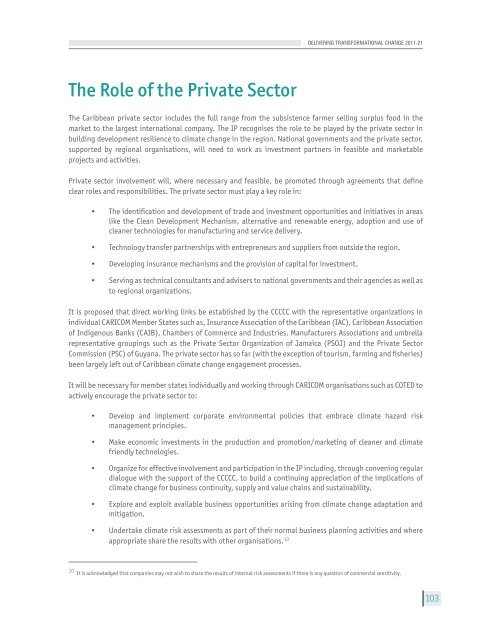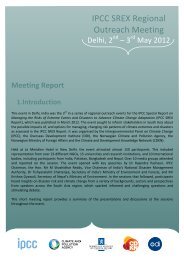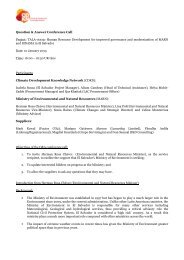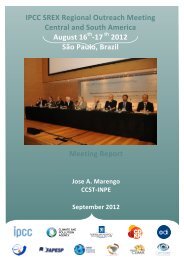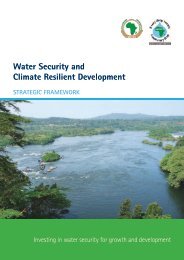Implementation Plan - CDKN Global
Implementation Plan - CDKN Global
Implementation Plan - CDKN Global
- No tags were found...
Create successful ePaper yourself
Turn your PDF publications into a flip-book with our unique Google optimized e-Paper software.
DELIVERING TRANSFORMATIONAL CHANGE 2011-21The Role of the Private SectorThe Caribbean private sector includes the full range from the subsistence farmer selling surplus food in themarket to the largest international company. The IP recognises the role to be played by the private sector inbuilding development resilience to climate change in the region. National governments and the private sector,supported by regional organisations, will need to work as investment partners in feasible and marketableprojects and activities.Private sector involvement will, where necessary and feasible, be promoted through agreements that defineclear roles and responsibilities. The private sector must play a key role in:• The identification and development of trade and investment opportunities and initiatives in areaslike the Clean Development Mechanism, alternative and renewable energy, adoption and use ofcleaner technologies for manufacturing and service delivery.• Technology transfer partnerships with entrepreneurs and suppliers from outside the region.• Developing insurance mechanisms and the provision of capital for investment.• Serving as technical consultants and advisers to national governments and their agencies as well asto regional organizations.It is proposed that direct working links be established by the CCCCC with the representative organizations inindividual CARICOM Member States such as, Insurance Association of the Caribbean (IAC), Caribbean Associationof Indigenous Banks (CAIB), Chambers of Commerce and Industries, Manufacturers Associations and umbrellarepresentative groupings such as the Private Sector Organization of Jamaica (PSOJ) and the Private SectorCommission (PSC) of Guyana. The private sector has so far (with the exception of tourism, farming and fisheries)been largely left out of Caribbean climate change engagement processes.It will be necessary for member states individually and working through CARICOM organisations such as COTED toactively encourage the private sector to:• Develop and implement corporate environmental policies that embrace climate hazard riskmanagement principles.• Make economic investments in the production and promotion/marketing of cleaner and climatefriendly technologies.• Organize for effective involvement and participation in the IP including, through convening regulardialogue with the support of the CCCCC, to build a continuing appreciation of the implications ofclimate change for business continuity, supply and value chains and sustainability.• Explore and exploit available business opportunities arising from climate change adaptation andmitigation.• Undertake climate risk assessments as part of their normal business planning activities and whereappropriate share the results with other organisations. 1010 It is acknowledged that companies may not wish to share the results of internal risk assessments if there is any question of commercial sensitivity.103


